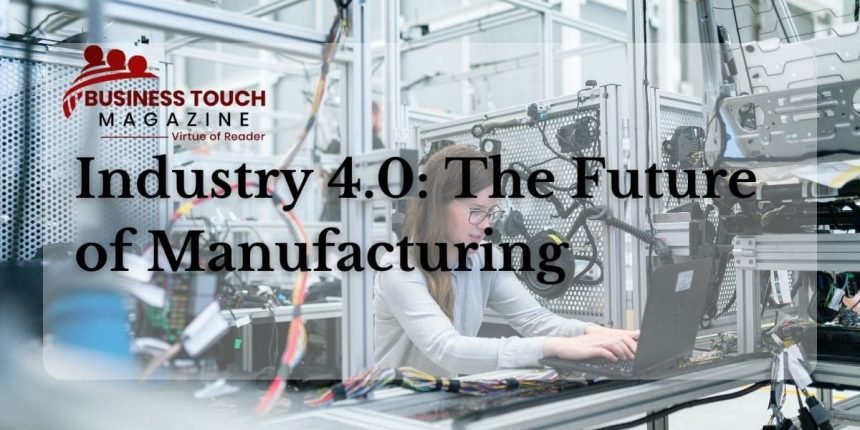The manufacturing industry has come a long way since the first industrial revolution. Today, we are in the midst of the fourth industrial revolution, also known as Industry 4.0. This revolution is marked by the integration of advanced technologies such as automation, data analytics, and the internet of things (IoT) into the manufacturing process. In this blog, we will explore what Industry 4.0 is, how it is transforming the manufacturing industry and its impact on businesses.
Industry 4.0 is a term used to describe the integration of advanced technologies into the manufacturing process. This includes the use of automation, machine learning, and the IoT to create a more connected, efficient, and intelligent manufacturing process. Industry 4.0 aims to create a smart factory, where machines and systems can communicate with each other and with human operators, creating a seamless and efficient manufacturing process.
One of the key benefits of Industry 4.0 is increased efficiency. With the use of automation and data analytics, manufacturers can optimize their production processes, reducing waste and improving quality. For example, a manufacturer can use data analytics to monitor the performance of their machines, identifying potential issues before they become major problems. This can help to reduce downtime and increase productivity.
Another benefit of Industry 4.0 is increased flexibility. With the use of automation, manufacturers can quickly adapt to changes in demand, production schedules, and product design. This can help businesses to be more responsive to customer needs and stay ahead of the competition.
However, Industry 4.0 also presents some challenges. One of the main challenges is the need for skilled workers. As manufacturing becomes more automated, there is a growing need for workers with skills in data analytics, machine learning, and other advanced technologies. This can create a skills gap that businesses will need to address.
Another challenge of Industry 4.0 is cybersecurity. With the increased connectivity of machines and systems, there is a greater risk of cyber-attacks. Businesses will need to invest in cybersecurity measures to protect their manufacturing processes and data.
To fully understand the impact of Industry 4.0 on manufacturing, it’s important to look at some of the specific technologies that are driving this revolution. One of the key technologies is the Internet of Things (IoT). This refers to the network of devices, sensors, and other objects that are connected to the internet and can communicate with each other. In the manufacturing context, this means that machines and systems can share data in real time, enabling greater visibility and control over the production process.
Another important technology in Industry 4.0 is automation. This involves the use of robotics, artificial intelligence (AI), and other advanced technologies to automate tasks that were previously performed by humans. Automation can help to improve efficiency and reduce costs, while also improving quality and consistency.
Data analytics is another critical technology in Industry 4.0. By collecting and analyzing data from machines and systems, manufacturers can gain insights into their production processes, identifying opportunities for improvement and optimizing their operations. Data analytics can also be used to monitor and predict equipment failure, helping to reduce downtime and maintenance costs.
The impact of Industry 4.0 extends beyond the manufacturing process itself. This revolution is also transforming supply chains, logistics, and even product design. With greater connectivity and visibility across the entire supply chain, businesses can improve their forecasting and inventory management, reducing waste and optimizing their logistics operations. Product design is also changing, with the use of 3D printing and other technologies enabling greater customization and faster prototyping.
However, as with any major technological revolution, there are risks and challenges to consider. One of the main risks of Industry 4.0 is the potential for job loss. As more tasks become automated, there may be fewer jobs available for human workers. This could exacerbate existing social and economic inequalities unless steps are taken to ensure that workers are reskilled and supported through this transition.
Another challenge of Industry 4.0 is the need for investment in new technologies and infrastructure. This can be a barrier for smaller businesses, who may struggle to afford the costs of upgrading their equipment and systems. Governments and industry organizations can play a role in supporting businesses through this transition, through funding initiatives and partnerships that promote innovation and adoption of new technologies.
In conclusion, Industry 4.0 is a major technological revolution that is transforming the manufacturing industry and beyond. By embracing advanced technologies such as automation, data analytics, and the IoT, businesses can improve their efficiency, flexibility, and responsiveness to customer needs. However, there are also risks and challenges to consider, such as the potential for job loss and the need for investment in new technologies. By addressing these challenges and working together, businesses and policymakers can ensure that the benefits of Industry 4.0 are shared across society, creating a more sustainable and equitable future for all.



